order histories, retained contact details for faster checkout, review submissions, and special promotions.
Forgot password?
order histories, retained contact details for faster checkout, review submissions, and special promotions.
Locations
Orders Processing,
Shipping & Receiving,
Warehouse
2 Shaker Rd Suites
B001/B101
Shirley, MA 01464
Production Lab
Floor 6, Suite 620
20700 44th Avenue W
Lynnwood, WA 98036
Telephone Numbers
Tel: +1 (206) 374-1102
Fax: +1 (206) 577-4565
Contact Us
Additional Contact Details
order histories, retained contact details for faster checkout, review submissions, and special promotions.
Forgot password?
order histories, retained contact details for faster checkout, review submissions, and special promotions.
PAN2 / USP52
PAN2 poly(A) specific ribonuclease subunit homolog (S. cerevisiae)
Catalytic subunit of the poly(A)-nuclease (PAN) deadenylation complex, one of two cytoplasmic mRNA deadenylases involved in general and miRNA-mediated mRNA turnover. PAN specifically shortens poly(A) tails of RNA when the poly(A) stretch is bound by poly(A)-binding protein (PABP), which is followed by rapid degradation of the shortened mRNA tails by the CCR4-NOT complex. Deadenylated mRNAs are then degraded by two alternative mechanisms, namely exosome-mediated 3'-5' exonucleolytic degradation, or deadenlyation-dependent mRNA decaping and subsequent 5'-3' exonucleolytic degradation by XRN1.
| Gene Name: | PAN2 poly(A) specific ribonuclease subunit homolog (S. cerevisiae) |
| Synonyms: | PAN2, PYPAF4, Ubiquitin specific protease 52, USP52 |
| Target Sequences: | NM_001127460 NP_001120932.1 Q504Q3 |
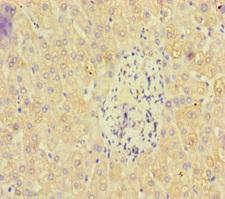
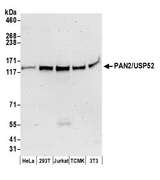


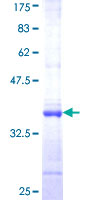
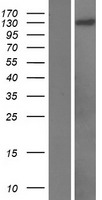
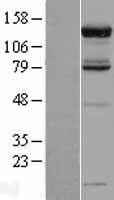


If you do not find the reagent or information you require, please contact Customer.Support@LSBio.com to inquire about additional products in development.









